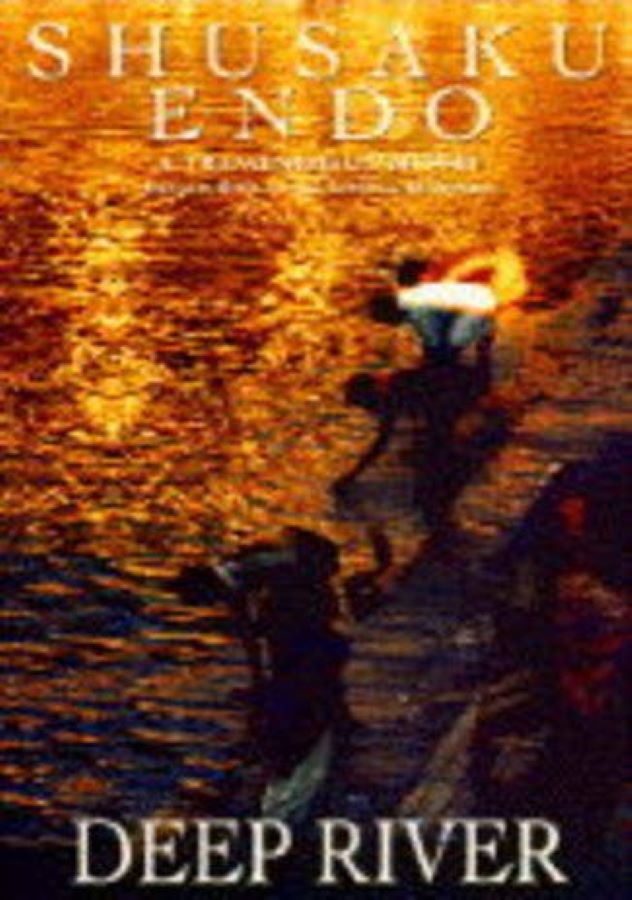I have been reading one thriller after another for quite a while so I decided to try something very different for a change. Looking through my vast book collection, I finally chose Deep River by Shusaku Endo.
Deep River (深い河, Fukai kawa) is a novel by Shusaku Endo published in 1993. When he died in 1996, only two novels were chosen to be placed inside his coffin. Deep River was one of them.
The story traces the journey of a group of Japanese tourists on a tour to India in October 1984. Each has different purposes and expectations, motivated by different forms of grief and guilt and searching for healing. During the tour, Prime Minister Indira Gandhi is assassinated by militant Sikhs, leading to riots and upheavel. Against this background, the tourists find their own spiritual discoveries on the banks of the Ganges River.
The narrative involves four main characters: Isobe, recently widowed, Kiguchi, a war veteran haunted by memories of Burma, Numada, a children’s author recovering from a serious illness, and Mitsuko, a cynical nurse searching for a heretical priest she knew in her university days.
Isobe is a typical Japanese salaryman whose wife has died of cancer. He is trying to learn how to cope with life alone after decades of being cared for in a conventional, dry Japanese marriage. On her deathbed she asked him to look for her in a future reincarnation. His search takes him to India, even though he has doubts about reincarnation.
Kiguchi is haunted by war-time horrors including cannibalism in Burma and seeks to have rituals performed in India for the souls of his dead comrades in the Japanese army.
Numada has a deep love for nature, preferring animals to people. He believes that a pet bird he owns has died in his place. He goes to India to visit a bird sanctuary.
Mitsuko, after a failed marriage, is trapped in an empty life, seemingly incapable of love. She goes to India hoping to find meaning in her life and to find her former schoolmate Otsu. During her school days, she had once seduced Otsu to steal him from God and then cruelly left him.
Otsu is a Japanese Christian with heretical opinions, views which prevent him from ever progressing in his quest to become a Catholic priest. He is unable to accept the strict doctrines of the Catholic church and ends up in India where he carry dead Indians to the local crematoria so that their ashes can be spread over the Ganges. His efforts ultimately lead to his peril as he is caught in the anti-Sikh uprisings in the country after the assassination of Indira Gandhi.
In addition to the main characters, there are a young married couple who loathe the dirt and noise of the country and a tour guide who loves the country and secretly hates the people he has in tow.
In our modern day consumer society, everyone seems to have their own cross to bear. In discussing pantheism and Christianity, reincarnation and nihilism, Endo asks us how we should live our lives. Otsu eventually finds an answer of sorts in the words of Gandhi:
“There are many different religions, but they are merely various paths leading to the same place. What difference does it make which of those separate paths we walk, so long as they all arrive at the identical destination?”
As with all of Endo’s books, Deep River is highly moralistic and deeply spiritual and unashamedly Christian, though he stops short of suggesting that Christianity may be a salve to the existential malaise he sees at the heart of modern Japanese life.
 CY@CY Says Welcome to my dreamscape. Where a Lim is also a Ling.
CY@CY Says Welcome to my dreamscape. Where a Lim is also a Ling.
